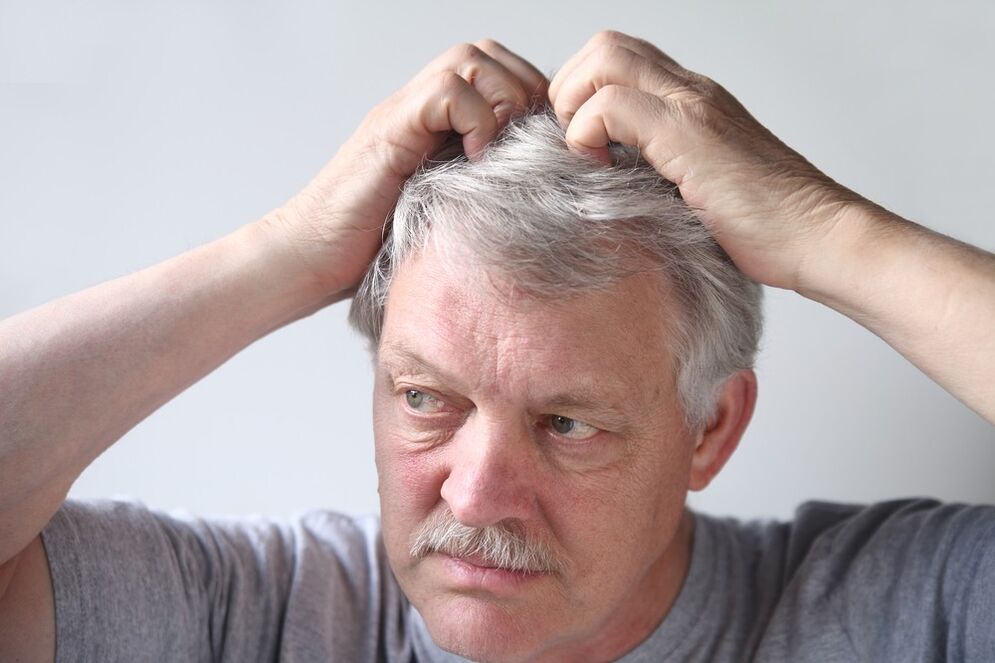
It can occur at any age, but the first symptoms usually appear gradually between the ages of 15 and 35.
Infections can be very annoying due to the ugly pimples all over the body, they are also annoying and sometimes even painful. Manifestations can range in severity: from a few scaly spots resembling dandruff, to large areas of skin with a rash. Typically, psoriasis develops on the elbows, knees, lower back, and head. Pits or other abnormalities may appear on the nails. The rash can manifest in many ways, including pustules, broken skin, itching, and scratched areas. Psoriasis is not contagious.
Signs and symptoms
- On dry skin red patches, covered with silvery scales.
- Small fine dots (more common in children) all over the body.
- The ligaments are swollen and stretched.
Warning signs and symptoms
Skin redness and body hair loss.
Psoriasis is a common skin condition that affects the cell life cycle. It usually takes about a month for new cells to emerge from the lower layer of the skin, where they form. Outside, they die and are separated by small particles. With psoriasis, this whole process takes place in a few days: the cells quickly die, and the spots are covered with a thick, hairless crust that spreads over the skin.
One in 10 cases of arthritis is accompanied by psoriasis. For most of these people, the effects of psoriatic arthritis are minimal. Some pain is felt in the affected joints, but it does not affect the health of the whole organ. Rarely, this pain limits mobility similar to that of rheumatoid arthritis.
Reason
In psoriasis, skin cells reproduce rapidly to form a thick, poorly adherent layer of skin. This usually does not happen until treatment is available.
Factors that can cause psoriasis:
- Systemic disease (such as tonsillitis).
- Immune system response to disease.
- Damage to the skin.
- Reactions to medications or vaccines.
- Stress.
- Excessive drinking.
- Environmental factors such as direct exposure to sunlight or chemicals (disinfectants, paints).
Doctors believe that psoriasis is a disease caused by many factors and has a genetic nature. But scientists still haven't fully figured out how much it has to do with genetics.
Diagnose
The diagnosis of psoriasis is usually made on the basis of a physical examination. Your doctor may need a sample of skin cells for analysis to determine the nature of the disorder and the possibility of a fungal infection.
The treatment
Psoriasis is difficult to control for a reason – there are many types of psoriasis by type, severity, and response to treatment. Each of them has its own characteristics, and each requires a special approach, so the doctor has to deal with each case individually for a long time. The goal of treatment is to regulate the growth and maturation of your skin cells. For mild cases, soap, shampoo, moisturizer, and ointment are sufficient.
Treatment can be done with:
Creams and ointments
Calcipotriene ointment is commonly prescribed. Calciporien controls the excess production of skin cells. This is a medication for mild to moderate psoriasis. Another option is treatment with retinoids such as tazarotene. Your doctor may also prescribe medications that contain norcoticosteroids and turpentine.
Prepare for outside management
Second-generation retinoids may help slow the growth of skin cells in severe psoriasis. Extreme care should be taken when being treated with this medicine because it can cause side effects such as eye and lip irritation, hair loss, excessive sensitivity to the sun, and complications during delivery if: pregnant.
Another is an anti-metabolite, which stops the growth of skin cells in psoriasis, and a drug that suppresses the immune system. These drugs can also cause side effects, including kidney and liver damage, and are usually used only in the most severe cases.
Lights
Psoriasis ointment along with ultraviolet A (PUVA), a combination of photosensitizing drugs, and ultraviolet A (UVA) together block the growth of skin cells in some casesPsoriasis. But long-term PUVA treatment (250 times or more) can increase the risk of skin cancer, including melanoma, a potentially fatal form of skin cancer. Sunbathing in warm sunlight (take every precaution to avoid burns) and using coal tar along with ultraviolet B radiation (Heckermann's method) are also effective treatments. A newer form of phototherapy called "narrow band ultraviolet B" (NB-UVF) can be as effective as PUVA and does not require medication before each treatment session. It does not develop the same predisposition to skin cancer as PUVA.
Personal care
To control the disease, you need:
- Eat foods rich in vitamins, get enough rest for the hours your body needs, and exercise regularly.
- Maintain a healthy weight. Psoriasis often appears in the folds of the skin in obese people.
- Do not rub or scratch the area with psoriasis lesions.
- Rinse every day to exfoliate. Avoid hot water or strong soaps.
- Moisturize the skin. Pat skin after bathing, apply moisturizer for oily skin immediately after the treatment, while the skin is still very moist. Do not use lotions or creams that contain alcohol. Use an air conditioner and keep the room temperature cool.
- Use soaps, shampoos, and ointments that contain liquid carbon resin and salicylic acid.
- Sunbathing should be in a moderately sunny place, but avoid sunburn.
- When the symptoms of the disease are extremely pronounced, use a cream with a concentration of 0. 5-1% cortisone for several weeks.

























